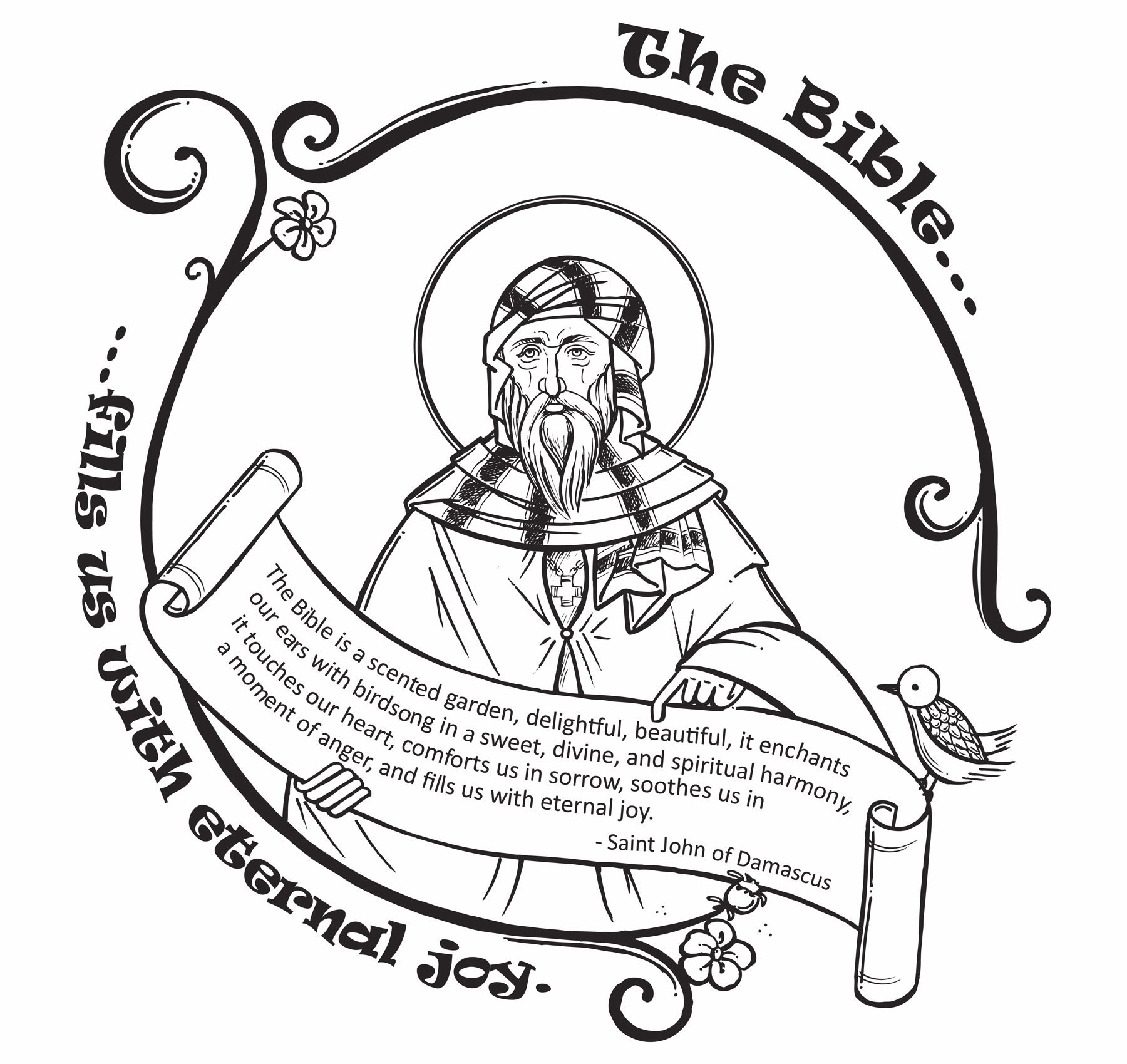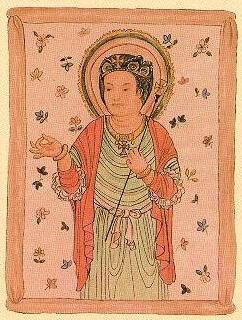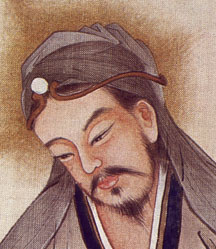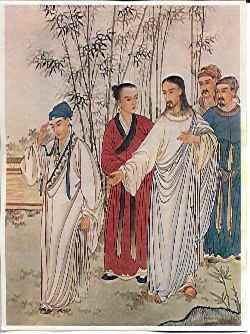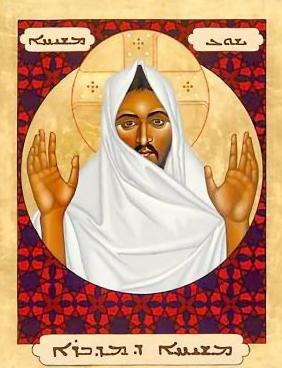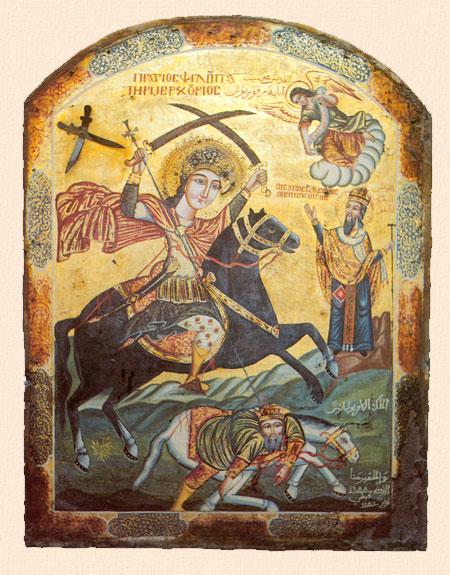- Jan 25, 2009
- 19,765
- 1,428
- Faith
- Oriental Orthodox
- Marital Status
- Private
- Politics
- US-Others
It actually has never been the case that Muslims all believe that Christ is not God and this is something that has been noted for centuries...as there have already been substantial amounts of Muslims who came to trust in Jesus alone (Isa) because of what they read in the Qu'ran which said He alone was the Messiah and source of salvation after honestly reading the text. Having Muslims in my family background, I've seen this play out as well and this is why it can be extensively difficult whenever it comes to speaking to of what Muslims believe - or what all Christians believe. As it is, there are multiple groups of Christians noting Christ is the way to salvation and yet they also point out the reality of what it means to serve Lord.She shouldn't have been suspended. However, we don't believe the same. Christians believe Christ is God. Muslims reject this notion. I don't see how we can consider that we worship the same God, in light of this. Yes, our religions have the same root; however, that doesn't mean we believe the same things about God. Christians believe there is no salvation outside of Christ.
With the text itself, it's always important to remember that one must have a better sense of context before thinking one can interpret the text. There are different sects of Islam, just as there are of Christianity (or any other belief) and adherence to the particular understanding of these groups can alter the way the text is understood and how one acts. And within Islam, there has ALWAYS been camps who note plainly that Isa is the Messiah and ALWAYS greater than Mohammad - even though other Immans read the text wrongly (or avoid it outright) when it comes to missing how Mohammad himself always said Jesus was the Messiah.
Some of this has been discussed before - as I've shared before in places such as "Trinitarian Monotheism?" (http://www.christianforums.com/.../trinitarian.../page-5 ) or "how can Muslims say Jesus is the Messiah but not accept him as the son of God?" ( http://www.christianforums.com/.../how-can.../page-21... ) and many other places. Personally, I do not appreciate it at ANY point when Muslims have been discriminated against and things claimed of them by outsiders that do not deal with what they've said. Others such as St. John of Damascus (when Islam in its beginning stages was called the heresy of the Ishmaelites") was one who interacted a lot with Muslims....and there were many other early Church Fathers who did the same. There was an extensive history where both Christians and Muslims went to Holy Places together and interacted - but the radicals in Islam had a big issue with that. ...and thus, what you see currently is the extremists seeking to end that. Even other Muslims have protested and complained against what radical Islamists have done to Holy Sites and Christians......
As an example of commonality, With regards to the Trinity, I am glad for other Christian scholars pointing out the issue plainly. As one scholar said best (Dr. Miroslav Volf):
Some theologians argue that when Christians and Muslims say "God is one," they mean fundamentally different things, since for the Christian, God is a Trinity.
I would respond by asking, "Do Christians and Jews worship different gods?" And I would hope the response would be, "No. Jews and Christians worship the same God. They just understand God in a different way—Christians in a Trinitarian way, and Jews not."
Some Jews and Muslims accuse Christians of being idolatrous for believing in the Trinity. My response to both groups is that they fundamentally misunderstand the Christian understanding of the Trinity. It's not that we worship three distinct entities who sit on three thrones next to each other; we worship one undivided, divine being who comes to us in three persons.
I would also argue that the denials of the doctrine of the Trinity in the Qur'an are denials of an inappropriately understood version of the Trinity. My claim is simply that much of what Muslims deny of the Trinity (e.g., that we worship three gods) ought to be denied by every right-believing Christian.
We've come up with this idea that Muslims are our enemy, and that Muslim terrorism and extremism are the most important enemies we should be combating. I think this is bogus.
Don't most religions postulate a God who is all-powerful and merciful? Is it possible that we all worship the same God in the end?
In that case, maybe there is no such thing as idolatry, only different interpretations.
If somebody postulates the existence of more than one god, I would have to say we don't worship the same god. If somebody says that God is basically one with the world, I would also have to say we don't worship the same god. What binds Muslims and Christians, and what is central to my argument, is that God is one, that God is distinct from the world, and that the one God has created everything that is not God. There is a radical divide between creature and creator. This is a fundamental monotheistic belief. Muslims, Christians, and Jews share that belief. Therefore, they believe in the same God. Polytheists and idolaters do not share that belief.
If Christians and Muslims worship the same God and understand his will as more or less the same—to love God and neighbor—are Islam and Christianity two equally worthy paths to salvation?
I can worship the same God and still not properly, adequately, fully relate to that God or understand who that God is and what God's ways with humanity are. Each of the faiths, Islam and Christianity, has a different way of understanding precisely what God demands and, more fundamentally, what God gives. And I think it's appropriate for each of the faiths—but especially for Christians, who are commanded to do so—to engage in witness, to point to the full reality of who God is and what Jesus Christ in particular has done for the salvation of humanity.
4
With similarities, When understanding the background of how the Quran developed, some things tend to make more sense as to how it developed as it did. Again, studying one of the earliest critiques of St.John of Damascus is amongst the best routes to go with since his view was that Islam (when it was starting) was essentially a heresy within Christianity rather than something different at ALL points from Christianity. He called it the "Heresy of the Ishmaelites." John the Damascene was a saint and an early Church Father who experienced Islam during its infantile stages...
- St John of Damascus on Islam | biblicalia
- Of The Tractate of John of Damascus on Islam
- The Way of the Fathers » St. John of Damascus on Islam
- St. John of Damascus and the Ishmaelite Heresy « Marcio.ca
- St. John of Damascuss Critique of Islam - Orthodox Christian Information Center
- Pilgrims of Christ on the Muslim Road: Exploring a New Path Between Two FaithsBy Paul-Gordon Chandler
- Pilgrims of Christ on the Muslim Road: Exploring a New Path ... - Page 102

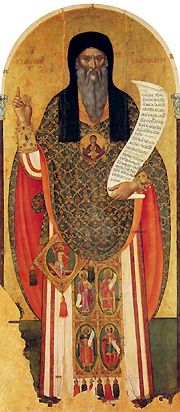
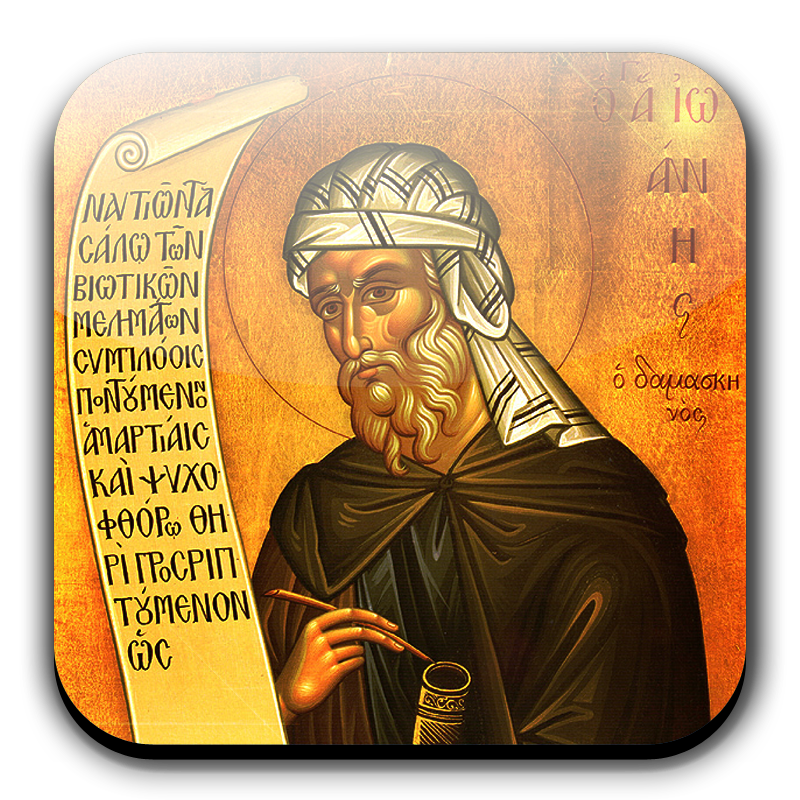
As others have often noted, the problem with Islam is that it stopped where Muhammad began. He had tried to call his people to worship God against pagan worship/idolatry..and reintroduced the Abrahamic faith into a pagan area. However, despite any positive gains, there were many others that were later developed into error as life went on---making him comparable to Solomon, the great teacher/king who ended his life doing exactly opposite of what he had initially preached and demonstrated. To judge from the subsequent nature of Islam, Christianity seems to have been particularly interesting to him, since Muhammad adopted and adapted quite a few Christian ideas...and IMHO, when studying the people who initially came into the land where Muhammad grew up in, it seems that much of the Disputes between the Eastern Orthodox Christians and the Roman Catholic papacy influenced Muhammad s understanding of Christianity on certain levels. Despite all of the ways that Muhammad did erroneous things, I'd tend to agree with others who feel that the man was partially a victim of Christianity/the evolution it went through.
The man was also a victim of having several things occurring at once. As another noted best on St. John of Damascus' critique of Early Islam:
First of all, it is essential to realize that theology in Islam developed in large part as a result of specific political debates. On theological issues, there is evidence that it may also have developed, at least in part, as a reaction to early Christian-Muslim polemics. Ignaz Goldziher, a respected Orientalist, reminds us that "Prophets are not theologians." Essentially Goldziher means that those who “receive” revelation may not have any idea about how to put it together consistently, nor are they always aware of the contradictions that later generations will have to reconcile. The Qur’an has little to say in regard to actual theology and Muhammad did not have much to add outside of the later Hadith traditions. These traditions, moreover, deal more with actions rather than beliefs. Therefore, it is necessary to understand that there is a significant difference between Christianity and Islam in regard to their view of theology; Christianity is concerned with orthodoxy (right doctrine) and Islam stresses orthopraxy (right practice). John Esposito writes that “for Christianity, the appropriate question is, ‘What do Christians believe?’ In contrast, for Islam (as for Judaism), the correct question is, ‘What do Muslims do?’"vPerhaps that is why even today there is such an emphasis on faith for many Christians and on obedience for most Muslims. Esposito refers to the Muslim belief that the “Book of deeds” will be used as a basis for their judgment, while in Christianity the basis will be a person’s faith in Christ and his atoning death – belief in what Christ has done for us rather than what we can do for him.6 Islamic theology most likely developed out of its sociopolitical context and its early confrontation with Christian polemics
From what I understand, Constantine legalized Christianity and made it the official religion of the Empire. Technically, as shared elsewhere, his actions were really in connection with other Emperors since there was another who he was a Co-Ruler with that made a difference (Licinius in specific). - and to be clear, Licinius was a pagan emperor who ended up punishing/persecuting Christians everywhere in his competition with Constantine to be dominant since he felt that it was not good to have one claim Christ as emperor. People who were Christians were kept from labor/jobs and harmed in several other ways.....and the two co-emperors, the pagan Licinius and the Christian Constantine, reigned together over an indivisible empire at one point and both sides had mistreatment of Christians occur and Pagans. The man did grant everyone - Christians, Jews and others - the liberty to worship as they pleased....but his religion to promote was Christianity - with believers rejoicing in it in the same way that the Jews of Ezra's time rejoiced when the King of Persia promoted their culture/beliefs politically (Ezra 1-4) .
And in order to ensure there was unity, the many councils occurred over the years for Christians to discuss among themselves. And during the time when the Nicene Creed established orthodoxy, especially as it related to the Person of Christ, Expulsion of heresy occurred as a result of nationalized Christianitymany Christians with variant beliefs migrated/fled to the Arabian peninsula, which by the 6th century comprised a mixture of Jews, Hanifs, polytheistic Arab tribes, and Christians with varying beliefs.
In the context that Muhammad lived in, his influences were Arab polytheists, "heretic" Christians, Jews, and Abrahamic monotheists called Hanifs. The Quran addresses a number of heresies that had already been dealt with 300 years earlier during the age of great Christian councils, and we should learn to read it through the cultural lens of its time. Some examples of heresies it addressed were ones like saying that Jesus/God the Father and the Holy Spirit were "3 different gods" (as many Muslims often say "CHristians" say when failing to understand that Muhammad said not to support the ideology of 3 gods since other Christians were condeming such).
Happened for others when they witnessed to Muslims and realized that many of their reactions were due to misunderstanding what Biblical Christianity was truly about. One story I remember involved a man witnessing to two Muslims and one Muslim noted "Did God have any sons?"---and the man said "Yes"...with the Muslim replying "NOT ACCORDING TO THE BIBLE!!!!". The believer was shocked and asked his Arabic Christian friend why, with the other responding by asking what the Muslim meant. The man translated and said the Muslim was offended due to thinking that God having a Son (Christ) meant that he had sexual relations with Mary---similar to the ways that Greek-Gods did things and how Mormonism teaches when it says God fathered Jesus through "celestial sex" with other beings.
When the Christian explained the issue to the man and clarified what he meant---that being the Son of GOD DIDN'T imply sexual relations, the Arabic Christian asked the Muslim if what the Christian made sense...and to the Muslim, he said that it definately connected. It all came back to the issue of understanding how to best connect with others and changing the conversation/finding ways to speak in manners that actually made sense to others....more shared here and here. I glad that Yeshua left us the example He did when it came to relating to others---with his stances toward Samaritans being amongst the most powerful (as many have often equated the Muslims with Samaritans in many ways, more discussed here at Frontier Missions
But some of this has been covered elsewhere more in-depth, as said here:
THere's no escaping the reality that Muhammad did a lot of bad, as well as a lot of good/things directly in line with what the Bible calls for. He addressed things such as polytheism amongst the Arab people/condemned it for what it was--and he sought to unite his people as well.
As another wisely noted:
When someone argues that Muhammad was a robber or a murderer, it is often the case that many Muslims suddenly cry out in one accord, "But he was merciful and kind! He started Islam!! How dare you say something bad about him!? He was the greatest prophet ever! Stop being so intolerant!"While it is an error to maintain, as Muslims do, that Muhammad was history’s greatest moral example, some critics are equally mistaken when they go to the opposite extreme and portray Muhammad as history’s worst moral example. Indeed, Muhammad had many positive characteristics. We know that he was courageous, both because he patiently endured several years of persecution in Mecca and because he fought in numerous raids and battles. Throughout his life, Muhammad placed an emphasis on helping orphans and widows. There were times when he showed great mercy. He was an ardent monotheist, and despised idolatry. He told his followers to heed God’s prophets, such as Noah, Abraham, Moses, and David. These are areas where even non-Muslims would agree that Muhammad exhibited positive traits.
The difficulty here is that, no matter how loudly a Muslim shouts these objections, they have no power to overcome the historical fact that Muhammad was a robber and a murderer.....and if saying he was the greatest example, any claim to moral superiority will be an empirical issue, that is, a matter of examining and weighing the evidence.
Tragically, examining the evidence is something that most Muslims seem unwilling to do. For example, Abul A’la Mawdudi presents the following picture of Muhammad:
He is entirely different from the people among whom he is born and with whom he spends his youth and early manhood. He never tells a lie. The whole nation is unanimous in testifying to his truthfulness. . . . He is the very embodiment of modesty in the midst of a society which is immodest to the core. . . . He helps the orphans and the widows. He is hospitable to travelers. He harms no one . . . [He] is such a lover of peace that his heart melts for the people when they take up arms and cut each other’s throats. . . . In brief, the towering and radiant personality of this man, in the midst of such a corrupted and dark environment, may be likened to a beacon-light brightening a pitch-dark night or to a diamond in a heap of dead stones. . . . [After he begins to deliver the message of Islam the] ignorant nation turns against him. Abuses and stones are showered at his august person. Every conceivable torture and cruelty is perpetrated upon him. . . . Can anyone ever imagine a higher example of self-sacrifice, brotherliness and kind-heartedness towards his fellow beings than that a man would ruin his happiness for the good of others, while those very people for whose betterment he is striving should stone him, abuse him, banish him, and give him no quarter even in his exile, and that, in spite of this all, he should refuse to stop working for their well being? . . . When he began preaching his Message, all of Arabia stood in awe and wonder and was bewitched by his wonderful eloquence and oratory. It was so impressive and captivating that his worst enemies were afraid of hearing it, lest it should penetrate deep into the recesses of their hearts and carry them off their feet making them forsake their old religion and culture. It was so matchless that the whole legion of Arab poets, preachers, and speakers of the highest caliber failed to bring forth its equivalent. . . . This reserved and quiet man who, for a full forty years, never gave any indication of political interest or activity, suddenly appeared on the stage of the world as such a great political reformer and statesman that without the aid of radio, telephone and press, he brought together the scattered inhabitants of a desert extending across twelve hundred thousand square miles. He joined together a people who were warlike, ignorant, unruly, uncultured, and plunged in self-destructive trivial warfare—under one banner, one law, one religion, one culture, one civilization, and one form of government. . . . He accomplished this feat not through any lure, oppression or cruelty, but by his captivating manner, his winsome personality, and the conviction of his teaching.This is actually a very condensed version of Mawdudi’s reverent depiction of his beloved prophet, but it accurately reflects the Islamic conception of Muhammad by many. The problem, of course, is that this conception is horribly inaccurate. The historical Muhammad (that is, the Muhammad we can know about through history) was psychologically unstable at many points, ruthless towards his enemies, and, according to some, sexually perverted. This isn’t to say that Muhammad was all bad. He wasn’t, and Mawdudi is correct in maintaining that Muhammad’s character played a role in converting people to Islam. Even so, while Muhammad may have had many redeeming features, some of his less admirable characteristics are difficult to ignore.
--Abul A’la Mawdudi, Towards Understanding Islam (Islamic Circle of North America, 1986), pp. 52-67.
But again, despite where there were flaws, there is no justification for saying that all things done by the man were bad.
The Quran actually has passages in it which were directly from scripture (seeing the context that the author of the Quran grew up in) - and of course, the Quran has elements in it that were not in line with how Christians saw Christ - the entire concept of partial revelation and knowing what Muhammad was actually facing in the time/era he grew up in.
It is NOT in the Quran at any point (nor was the early thought of Muslims in the development of Islam) that Christ was not the atonement for sins - seeing it note plainly that Christ (Isa) WAS and IS the Messiah to save all of mankind/deliver judgement. Anyone speaking past that already goes counter to the Quran in its original text....and that is a common error that has been addressed for centuries by Muslims in Islam (which is why it was noted that you cannot make claims without actual validation or addresment of where the text differed from you). And the Quran did not note that in no sense was Christ crucified - the context was always that men could never have killed Christ fully since death has no ultimate control over life and that Jesus laid DOWN His life - no man could kill Him without permission.
This is why it was noted that one can't merely make claims on what the Quran says and then deny what it actually says - or avoid how others understood/proclaimed what was said on it in the time/era it began. And as you've not grown up Muslim, it is a bit evident you don't really address the Quran.
As it is, Islamic textual content(The Qur'an) primarily consist of Gnostic Gospels from the Syrian orders as is evident since Syrian Arabic and its dialect occurs in many places in the Qur'an. There were things present IN the Syrian orders since there were various forms of Christian thought which tended to get included as well (Based on forms of Christian ideas Mohommad was exposed to).
Moreover, Most, if not ALL of Islam is based on non-canonical Jewish sources that existed amongst the illiterate Jews of western Arabia and which were told by storytellers in the public market places of mainly Mecca. And the same goes for stories told by many of the Christians who were exiled from the Eastern empire due to their views being herectical/not accepted by the Orthodoxy of the day.
.... What the Quran is against is the concept of there being MULTIPLE Gods (polytheism) to be worshiped....and this is the issue that was happening in the Early Church when others coming into Muhammad's territory were exiled from the Church (Byzantine Empire) due to their proclaiming that Christ was one god among many and that Christ was akin to the Greek Gods who were born of sexual unions. Christians long noted the same things and Muhammad saw that directly.
Again, in the context that Muhammad lived in, his influences were Arab polytheists, "heretic" Christians, Jews, and Abrahamic monotheists called Hanifs. The Quran addresses a number of heresies that had already been dealt with 300 years earlier during the age of great Christian councils, and we should learn to read it through the cultural lens of its time. Some examples of heresies it addressed were ones like saying that Jesus/God the Father and the Holy Spirit were "3 different gods" (as many Muslims often say "CHristians" say when failing to understand that Muhammad said not to support the ideology of 3 gods since other Christians were condeming such).
One cannot ignore the actual background of the Quran and simply harp on claims of what it says - yet show no verification within the Quran on those stances.
Nowhere in scripture does it ever note that Jesus Himself would not have fallen into the Judgement of God if He ever sinned against the Lord - the entire reason why the Incarnation itself was very real, as it was truly a temptation of the Lord that occurred in Matthew 4 and Luke 4 and the stakes were high in light of how Christ was also a man subject to the Law of God that mankind was commanded to live out.
Incorrect (again), in light of where the Quran later noted directly that His being the Messiah was in regards to bringing JUDGEMENT on the world for its sins and being the One Allah Himself exalted over mankind, as well as the one who would cleanse man of his sins.
As noted before, people not actually reading the Quran and going on stereotypes actually tend to note the claims of "Jesus is just treated as a Prophet in the Quran" without actually reading the rest. And this has happened predominately with Christians who have a bent AGAINST anything pertaining to Islam - as well as Muslims who don't actually read the Quran.
"Peace Be Upon Him" was NEVER the only phrase used for Prophets - as it's an everyday phrase also used to other Muslims....one of the basics that are understood if actually growing up MUSLIM (which is rather evident you haven't ). And the distinct phrase used of Isa was radically different than what was given of Muhammad.
And with the Clay Pigeon story, it's not a radical thing that's new when dealing with context.
To give a different perspective on why so much within the Qur'an is similar to what is found in Christianity and why Mohommad knew that, it was once noted that what was noted in the Qura'an on Christ was indeed the same Yeshua but with a newly decorated biography---with the essentially looking to the right person but with an incomplete understanding that could lead to bad consequences.
Seeing how Muhammad himself was not really a scholar on all points and was heavily influenced by the accounts of Christ he may've heard from other believers in Christ, it is not surprising to me to see the many ways in which some of the things he notes are not fully accurate..or as well expounded upon as in the very Bible which the Quran encourages all to actually study. Its always interesting to see the many accounts of believers in Christ who noted that they grew up studying the Quran--and yet, grew from that into reading the scriptures when they noticed how the Quran instructed them to do so...and thus, they ended up reading the scriptures/gaining a fuller view of what the Quran only saw to a limited degree...
Some of it's akin to the dynamic of folk or tale tales and real biographies, as the former deal with unbelievable elements, related as if it were true and factual, even thoug there are many true aspects it was built around while other things are exaggerations. Some stories are exaggerations of actual historical/biographical eventS (i.e. Davey Crocket and the Alamo, John Henry, etc), for example fish stories ('the fish that got away') such as, "that fish was so big, why I tell ya', it nearly sank the boat when I pulled it in!"---but compared to an actual biography, one will get fuller details that describe an event in its fullness and give clarity on one aspect that wasn't understood as fully.
For a practical example of this within the Quran, one can consider the example of where it was noted that the Lord made clay pigeons come to life. In the Quran, it notes that "Jesus could make birds out of clay and create life for the amusement of his playmates with "Allah's" permission. He would make clay birds into which he breathed and they were transformed, by the Lord's permission into real birds that could fly. i.e. duplication of the process of CREATION, by God's permission. Seeing that, one must ask 'what purpose was there in allowing 'Jesus' to make birds out of clay what could fly (with Allah's permission) further God's purpose? For God doesn't do things without a purpose.
That fact that 'Jesus' could do this tells us that as a child 'Jesus' could create life. And who creates life, but God Himself? In the final analysis, perhaps the Qur'an is demonstrating that 'Jesus' is the Creator. For notice according to the Qur'an "Allah" creates through His Word---and Jesus/Isa is considered the Word and Spirit of God. Perhaps the author of the Qur'an didn't realize what this all meant...as he repeated Christian folklore and made a huge mistake in repeating it without understanding the full implications.
From an historical perspective, some of the stories in the Quran must have been circulating around Arabian caravan routes where Muhammad may have heard them when he was in the employ of his wife Khadija. If interested, the following 7-minute video explains a few of them.
With Eastern Christianity (in some circles), similar things have often come up...as there's one account somewhere I remember learning of where the 18yrs of the life was Christ (between when he was 12 and when he went into ministry) involved Him traveling to India, making playful miracles and learning. In the Quran itself, those specific folklore stories are from the second century and older. Some of the material in the Ahadith is actually taken verbatim from the Gospel of Thomas. The story of Jesus talking to Mary in the Cradle, as it appears in the Quran in Surah 3:38-48, has always interested me. For the story was most likely being told in the times of Muhammad when considering the pseudepigrapha accounts of the same. --and for more, one can go here or here, in light of how many other scholars have been noting the same for sometime now. Apparently Muhammad heard them told verbally and thought they were true, when in fact, they are folklore. He couldn't tell the difference, as one who wasn't educated. They include Jesus talking as an infant and making clay birds that could fly, plus others.
On the issue of folklore within the Quran, something else that may be worth noting is that many of the things that could be folk stories learned from other Christians still have much they can convey. In example, concerning the clay pigeon example, Christ did some pretty radical miracles that may've been VERY CRAZY to see---such as spitting in mud/placing it in someone's eyes ( John 9:5-7 ) or touching one's tongue and spitting before they were healed--as in Mark 7:32-34 --and the same with Mark 8:22-24 where he spit in a man's eyes. John 2 where he turned water into wine and helped keep a party going is another famous (and hilarious ) instance that I'm reminded of. ...and much of it seems odd. Nonetheless, that doesn't mean that because it seems odd to us automatically makes it something to suspect would not further God's purpose. In the wilderness experience in Matthew 4, if God commanded Jesus to turn stones into bread, that would have not been a problem. For God made food and Jesus being God could have done so. But his purpose in the wilderness was to fast...and had He turned stones to bread without first being One with the Father in reflecting His Will, He would have been acting without proper authority. What Satan tried to do with Jesus was to get Him to use His powers to satisfy His own desires rather than trusting God to supply all that He needed during His temptation...which Jesus responded to by reminding the enemy what the people of Israel should have learned in the wilderness (Deuteronomy 8:3).
Likewise, with clay pigeons, I don't think it'd be a good example for one to use if trying to show where Islam may miss it with stories of Christ. For even if/when it may not be a true story, it still does show the dynamic of what Scripture testifies to when saying that Jesus obeyed as a man, as the representive for all who believe so as to "fulfill all righteousness" ( Matthew 3:15, Hebrews 2:5-18, Hebrews 5:1-10, etc).
The same dynamics, IMHO, would also apply to things such as the Talmud and Rabbinical sources which are often quoted as authoritative, even if many weren't expressely mentioned in the Torah--for although some have aspects to them which are not really accurate according to the Torah and some things can be speculative, they can still offer valuable insights which can be benefical when having a Hebraic perspective on who the Messiah is.
Last edited:
Upvote
0








